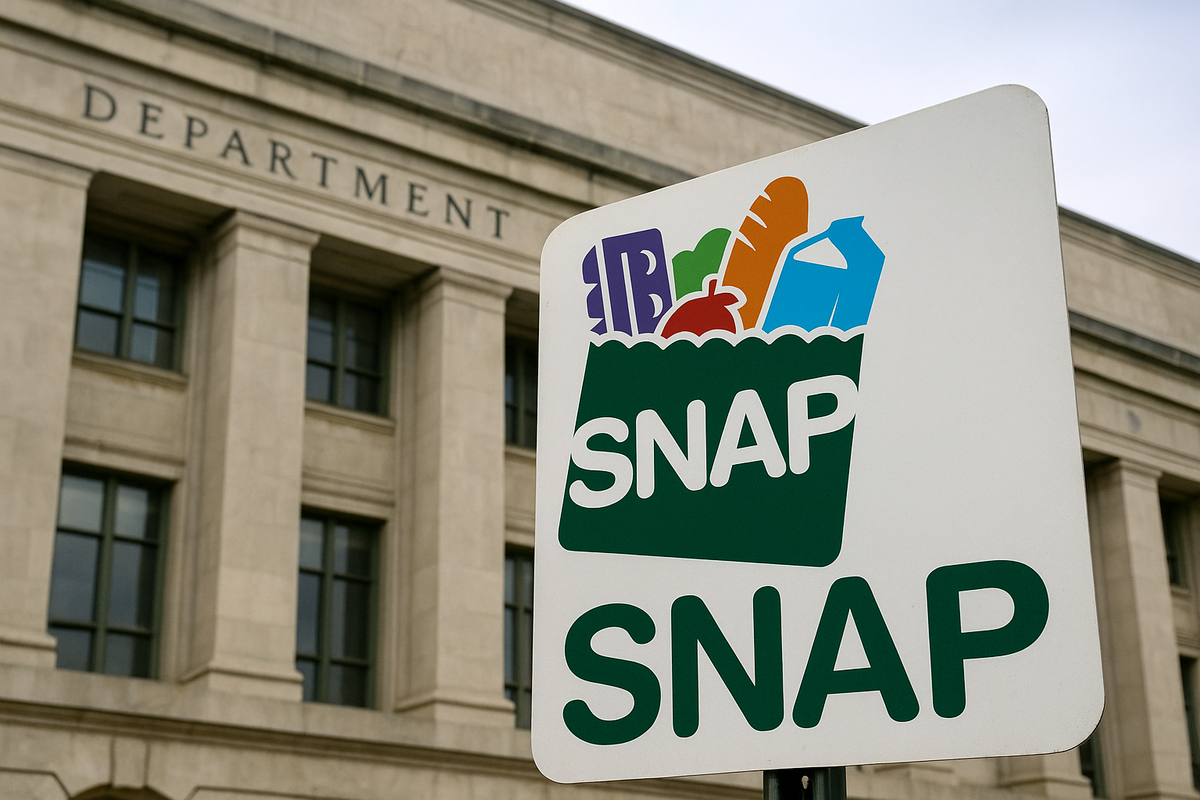Trump Administration to Partially Fund SNAP After Judge Orders
Announcement follows two court orders, benefits could begin flowing as soon as Wednesday

The Trump administration has announced that it will partially fund the Supplemental Nutrition Assistance Program (SNAP) after federal judges in Massachusetts and Rhode Island ordered the government to do so amid the ongoing shutdown.
The U.S. Department of Agriculture (USDA) had planned to suspend SNAP payments beginning Nov. 1, citing a lack of funds under the shutdown. That move threatened benefits for roughly 42 million Americans.
Last Friday, the administration quietly allocated $450 million to the Women, Infant and Children (WIC) program , which serves low-income mothers and infants, drawing from unused USDA tariff revenue. That move came as WIC was running out of money. WIC is a separate entity from the main SNAP program.
In the SNAP rulings, the courts directed the administration to dip into a $5 billion contingency fund to keep the program running, at least in part. One judge gave the option to fund the program fully, while another allowed for partial benefits with recalculations.
Treasury Secretary Scott Bessent said Sunday that benefits could begin flowing again by Wednesday, and the administration will not appeal the court order.
Despite the funding move, many beneficiaries may still see delays. The process of uploading funds onto State SNAP cards can take up to two weeks in some States.
The rulings came in response to lawsuits from 25 Democratic-led States and nonprofit groups. They argued the administration was legally required to keep SNAP active.
In his order, Judge John J. McConnell (Rhode Island) demanded the government present a funding plan by Monday. In Providence, he wrote that “Defendants’ suspension of SNAP payments was based on the erroneous conclusion that the Contingency Funds could not be used.”
Separately in Boston, Judge Indira Talwani called the suspension “unlawful” and ordered USDA to decide whether to use emergency reserves for reduced or full benefit amounts.
Because of the legal push, the Trump administration reversed earlier decisions not to use emergency funds.
Many States have already been preparing for a gap in SNAP. Food banks and nonprofits have already expanded operations, and some States are exploring ways to reload SNAP cards using their own funds.
In Alabama, the response to the SNAP cutoff has been nothing short of tremendous. Birmingham and Montgomery have moved to coordinate assistance efforts. Numerous local groups have stepped up to offer aid to those affected. In Hoover, the Birmingham Islamic Society is organizing the distribution of 35,000 meals, as ALPolitics.com has reported.
The Alabama Legislative Black Caucus called on Governor Kay Ivey to convene a special session of the Alabama Legislature to authorize the use of emergency measures, including tapping the State’s Rainy Day Fund to continue funding the benefits program, but the Governor declined to do so.
ALPolitics.com is actively sharing all Facebook posts related to food distribution across Alabama (that we see) on our Facebook page to help in getting this information out to as many people as possible.
With SNAP now tied to ongoing court orders, the shutdown’s pressure is widening. House Speaker Mike Johnson commented that issuing partial payments is “not as easy as hitting go send on a computer,” citing the complexity of recalculating benefits for 42 million recipients.
The crisis puts further strain on State budgets, food systems and families already living on the edge. Even though SNAP may resume—at least in part—many Americans will face tighter margins and uncertainty while the federal standoff continues.




